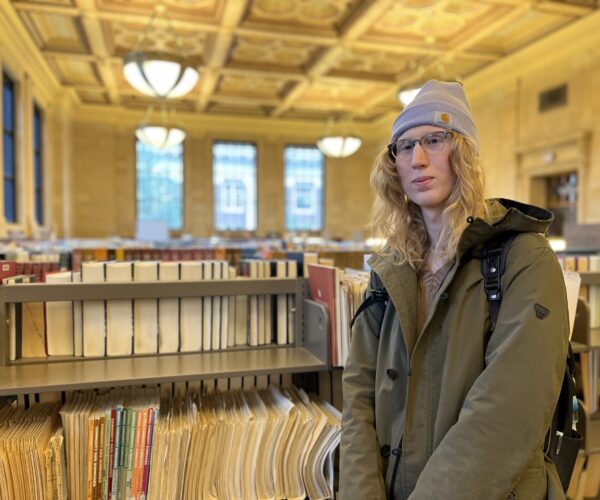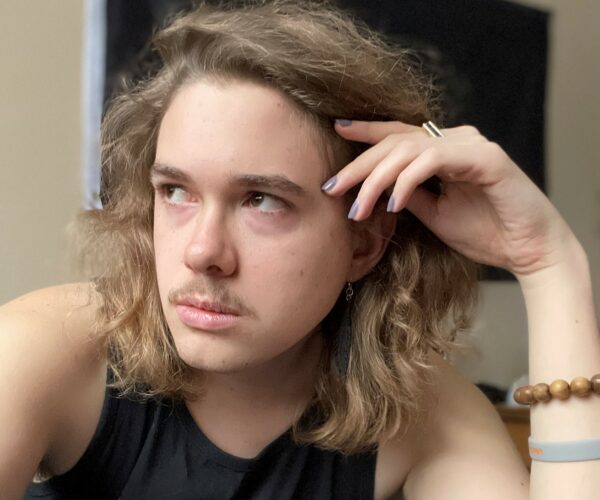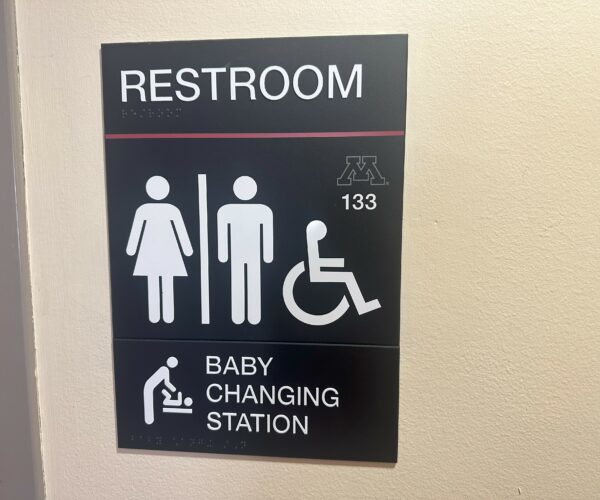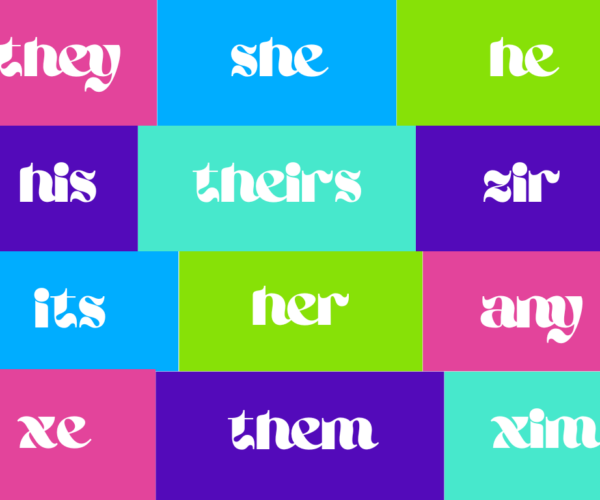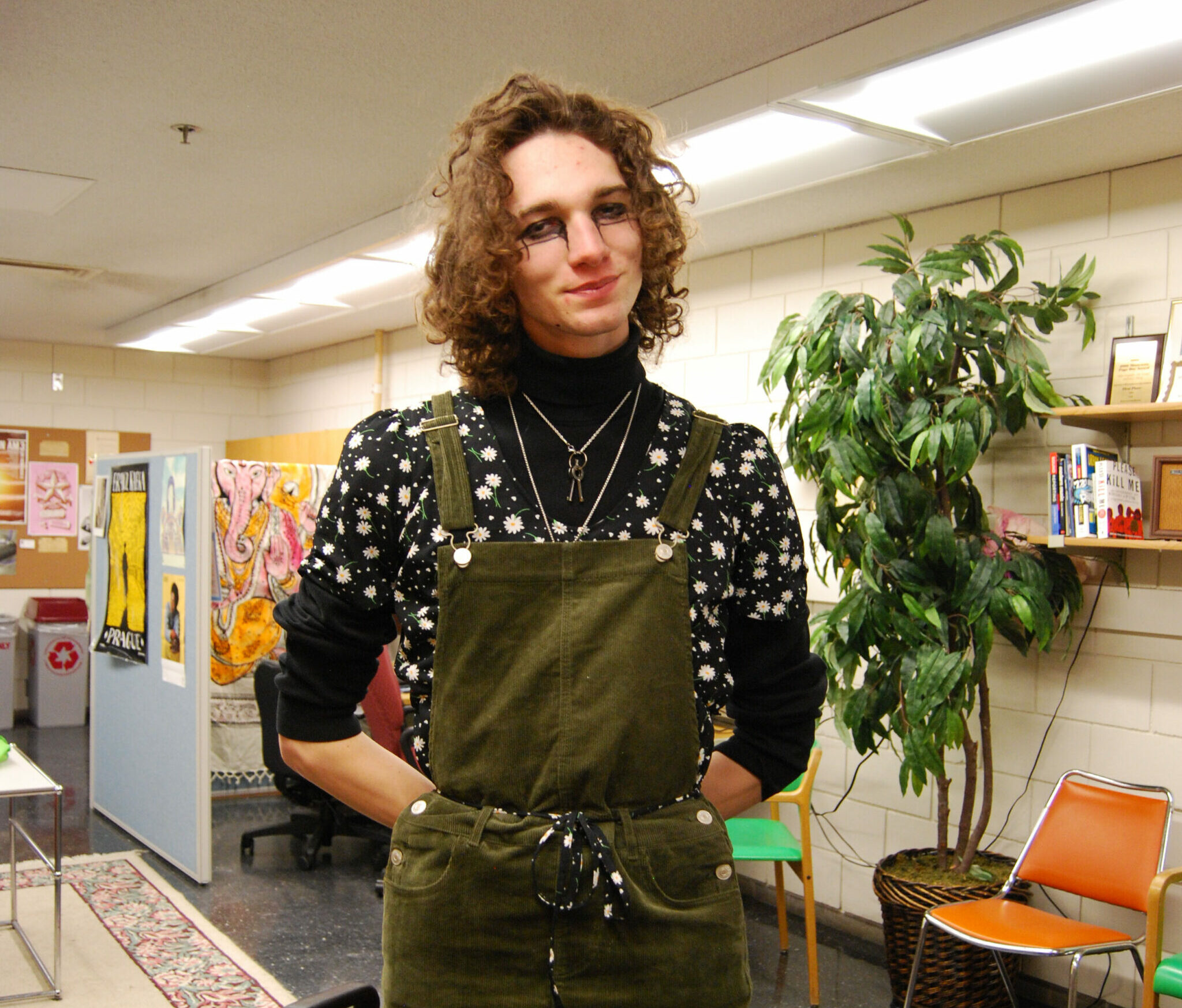Quinn McClurg is a second-year student majoring in journalism and cultural studies and comparative literature. They identify as transfeminine. Quinn writes poetry and is a reporter for Real College Podcast, a part of Radio K.
“I’ve been doing poetry since sometime in middle school. I would write it on and off here and there. In high school I took a creative writing class. In the last year or two I’ve been writing every week, and almost every day. The more I feel like I’m familiar and in the art type, the more it becomes abstract or the more it leads to abstraction. That’s kind of the approach. Poetry is that for me.
Cultural studies and comparative literature. So it’s comparing literature and applying theory in the literature can be anything from literature to film to music….It’s one of my favorite majors because you pretty much get to be an English major, but it’s more synthesis-based, like you’re connecting it to other things and other art movements and other music and people and whatever. It’s great.
So in journalism, I think my main thing that sets me apart – or I want to set me apart – is kind of the artistic energy to it. I can write something and I can make it sound good and I can make it be fun and I can convey a vibe as accurately as I want to. But sometimes journalism considers that flowery. So they cut it out. But that just kind of emphasizes the importance of connotation in just the power that one word has. Now I think because all my writing is so structured that just makes my poetry more abstract and more bizarre and more of a means of release. So it’s kind of like they all influence each other, but their differences allow them to be so much more traumatic.
I choose to believe journalism is a very progressive field. I don’t actually know if that’s true or not. I just value the ability to give voices to the people who do not have voices or have their voices stolen. So I assume I would be desired in the industry because you know, I am not of the cultural hegemony. And I would like to be able to help other people find their voices. And I just have to do it. I’m not really worried about it. Everybody’s like, don’t put your pronouns on your resume. I don’t give a s***. I’ll do it. I shouldn’t have to change who I am.
My radio stories: I find something that’s interesting to me. For example, Twelve Vultures. You walk in there. It’s a taxidermy store. I’m like what the hell? I walk into Dinky book house. That’s cool. There’s some history there. I’ll figure it out. But with stuff like divine terror, where it’s like a concept, it’s like there’s a story there. There’s a way around it. It’s something I want to investigate – what new connections can emerge. So it’s just that. And then writing the script is my favorite part. Because I get to be flowery as I want and I get to put the listener there.
I should be genuine. I shouldn’t have to change how I am or what I’m doing. I don’t really want to ever fully pass as a woman. I don’t ever really want to assimilate because the binary is f***ing stupid. So even if I’m out there and I feel like s***, I’m not really passing or I don’t look feminine or nonbinary or whatever. Or I look disgusting. Like I was wearing a dress the other day and I had like, a week of just hair around me because I didn’t shave. And other people look at me and probably think I’m nuts, but I don’t, I don’t care if I look like s***. Good. That’s disrupting the binary you know? If I’m able to be comfortable and when I look disgusting, like who f***ing cares? Society is so based upon the supremacy of what you can see as the supremacy of official media. I don’t have to look like a woman to be a woman.”
This interview has been edited for length and clarity.
Interview conducted by Andrew Kicmol.
